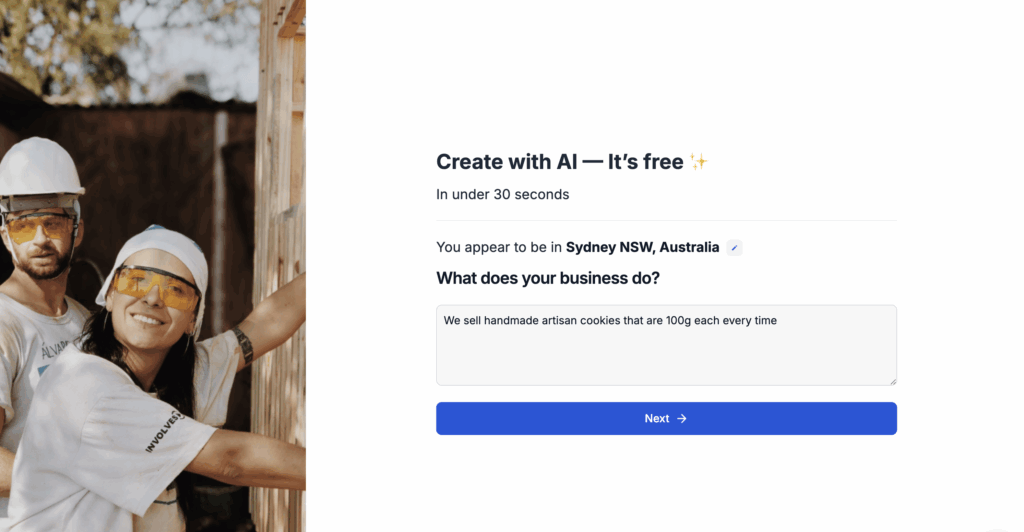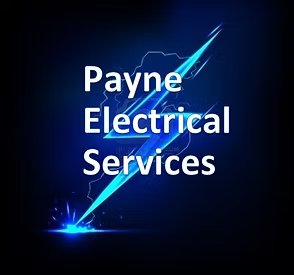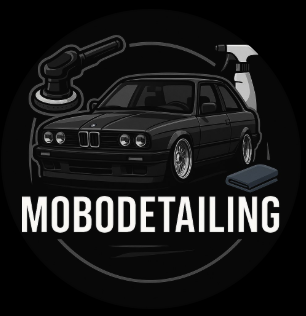If you’re building a brand or launching a side hustle, one of the first questions you’ll probably have is: how much does a domain name cost?
The truth is: owning the right domain name isn’t just about looking professional. It’s about owning a digital asset that builds trust, improves search visibility, and becomes part of your online identity.
For small business owners and freelancers, your domain is more than just a web address. Think of it as someone’s first impression of your website. And yes, the price can vary wildly from $1.99 per year to tens of thousands, depending on where you buy and what name you’re chasing.
This guide breaks down what impacts costs, what to watch out for, and how resourceful entrepreneurs can get the best bang for their buck. Let’s take the guesswork out of buying a domain name, and make sure you pick the one that drives real business results.
What factors influence domain name pricing?
Domain name costs aren’t random numbers. They’re shaped by strategy, demand, and a whole bunch of human psychology. If you’ve ever wondered why one name costs $12 and another $12,000, you’re not alone.
I’ve broken down the few factors that have the biggest impact on pricing, especially for freelancers and small business owners looking to stay lean but smart with their spending.
Demand and uniqueness of name
If the domain name falls into something that’s hot and trendy right now, expect to pay more. Short, memorable names that can suit a wide range of businesses are magnets for buyers. The competition drives the price up, like you see with any basic supply and demand.
- High-demand names like “smartcar.com” or “aichat.com” could cost thousands or even millions.
- Unique or niche names may cost less but still carry value within specific industries.
Domain length and brandability
Shorter domains usually cost more. This is because they’re easier to remember, type, and brand. Less can definitely cost more when it comes to characters.
- One-word domains (like zoom.com) are ultra-premium.
- Two to three-word combos can be more affordable but still catchy, like Bookipi.com.
- Long, complicated names tend to be cheaper, but harder for customers to recall.
Keywords included in the domain
Domains that include high-value keywords don’t just help with SEO, they also command higher prices because they attract traffic naturally.
- “Buyusedcars.com” can be expensive.
- “AffordablePetGroomingNYC.com” can be less expensive, but specific and highly searchable.
Keywords matter when people are typing into Google. The right domain gives you a nice head start on organic visibility.
Industry relevance of the name
If a name hits the bullseye of your business niche, expect a price tag to match. Real estate, finance, SaaS, and health domains are known to fetch higher prices across the board.
- “homeoffers.com” suits real estate and is likely very valuable.
- “cloudhrtools.net” fits SaaS and is also valuable depending on the market demand.
The more competition in your vertical, the more you’ll likely pay to get a quality name that works in your space.
Extension (TLD) used (.com, .net, .biz, etc.)
Not all domain endings are treated equally.
.com is still the gold standard, plain and simple.
If you can get a .com version of your brand, go for it. It’ll cost more but deliver trust and recall.
- .com is usually the most expensive but the most trusted and recognized.
- .net, .org are slightly cheaper, and often used for specific types of businesses or nonprofits.
- .tech, .studio, .ai are trendy and sometimes pricier depending on the niche.
It’s possible to hear about a three-letter .com sell for six figures. That wouldn’t happen with a .co.uk or .xyz, no matter how clever the name is.
Registrar pricing models and service tiers
Some registrars roll out flashy promo pricing to reel you in, then charge more on renewals or for basic privacy. Others keep it transparent up front. Know the difference before you buy.
- No-frills registrars can offer domains as low as $10–$15/year.
- Full-service registrars may charge more but bundle in protection, email, and DNS management.
- Some charge extra for privacy protection, while others include it by default.
Bottom line? Don’t just compare prices. Compare what’s included too. What looks cheap now could cost you more long-term depending on your needs.
Knowing what drives domain pricing helps you make smarter moves. And if you’re serious about building a small business presence from anywhere, like with Bookipi’s AI Website Builder, locking in the right domain is one of the smartest decisions you’ll make.
How much does a domain name cost on average?
If you’re budgeting for your business website, this question always comes up: how much does a domain name cost?
The short answer: A standard domain usually runs between $10 to $20 per year.
But just like apartment rent varies by location, domain pricing changes based on demand, domain extension (.com, .net, etc.), registrar competition, and if you’re eyeing something premium.
Let’s break it down with real-world numbers so you’re not guessing where your money’s going.
What does a standard domain name cost?
If you’re buying a regular, non-premium domain through a reputable registrar, you’ll typically be looking at these ballpark figures for a one-year registration:
- A .com domain name costs around $12/year. It’s the most popular TLD for small businesses, so demand keeps pricing steady.
- A .net domain name costs $10-$14/year. This is a common alternative if the .com version of your name is already taken.
- A .biz domain name can usually cost $8-$14/year. It’s marketed for businesses, but less commonly used than .com or .net, so pricing can be a bit lower.
Most registrars toss in discounts for the first year, then bring pricing back up at renewal. Expect those ups and downs.
Don’t want to deal with those sneaky hidden renewal fees? With Bookipi’s AI Website Builder, you get a free domain and hosting all in one easy $10/mo package, with access to all premium features to create and edit your site fast.

Why do premium domains cost way more?
You might see some domains priced at $500, $5,000, or even $50,000+. These are known as premium domains. They’re usually:
- Short (think: 1–2 words)
- Easy to remember
- Keyword-rich (like “FashionShoes.com”)
- Already owned and resold by individuals or companies
Premium domains aren’t about registration costs. You’re paying for demand and brand value. If your brand strategy depends on memorable URLs, that premium price might be worth the upfront hit.
So, what’s this got to do with running your small business?
If you’re a freelancer or small business owner, your domain name is your digital storefront. Spend what fits your budget, but don’t cut corners if your name could confuse customers or make you look less legit.
And yeah, I’ve seen far too many first-timers spend hours making logos, tweaking fonts, only to realize their domain name is taken, or worse, costs them four figures. So start pricing domains early in your branding process and look at renewal costs, not just first-year promos.
Still wondering how much does a domain name cost? Think of it like rent. Pick the best address that fits your wallet, and one your audience won’t forget.
What’s the difference between new, standard, and premium domain names?
Not all domain names cost the same, and it’s not random. The pricing depends a lot on whether the domain is new, standard, or premium.
If you’re a freelancer or small business owner trying to lock in your online identity, understanding this can save you real money (and stress).
What makes a domain name ‘new’ or ‘standard’?
A new or standard domain is one that’s never been registered before and is available for purchase at a base price, typically from $10 to $20 per year depending on the domain extension (.com, .co, etc.).
These domains are registered through domain registrars like GoDaddy, Namecheap, or Google Domains. Here’s what you should keep in mind:
- Unregistered: No previous owner. You’re the first.
- Market-priced: Cost is fixed by the registrar—no markup due to demand.
- Good for availability: If you’re flexible with name styles (e.g., using dashes or less common words), you’ll likely find one in this bracket.
Here’s an example. You want “BrooklynCraftCoffee.com” and it’s not taken. You can probably grab it at the standard price with no bidding and no back-and-forth negotiation.
So, what exactly is a premium domain?
Premium domains are already owned or have high perceived value. That value could be from high search traffic, multiple keyword matches, brand potential, or just how short and memorable they are.
- Already owned: Usually purchased by domain investors or resellers.
- High demand: Common, competitive keywords like “design,” “finance,” or “shop” often fall into this category.
- Higher price tag: Can range from hundreds to tens (or even hundreds) of thousands of dollars.
An example of this in action: say “NYCDesignStudio.com” is already owned and listed for $2,500 because of keyword value and regional popularity. That’s not uncommon if you’re targeting big-city markets or trending niches.
Why does the market impact domain type?
The line between standard and premium actually comes down to a mix of registration status and demand. A name that might cost $12 today could jump to $5,000 tomorrow if listed as premium.
Registrars and aftermarket platforms assess value using:
- Keyword search volume
- Length and spelling (shorter usually means more expensive)
- Domain history and backlinks
- Extension (.com is still king in terms of visibility and trust)
And sometimes it’s just about timing. A domain sitting unnoticed for years can suddenly become premium when a new trend hits or a startup with funding enters the scene.
You might hear stories of entrepreneurs who regret not grabbing a domain when it was standard, only to find it on the aftermarket 6 months later for 50 times the price.
So how much does a domain name cost? That depends, especially on whether you’re first to the table or buying from someone already in the game. Stay flexible, do your research, and act fast when you see a domain name that fits your brand and your budget.
Which domain registrar has the best pricing for small businesses?
If you’re asking how much does a domain name cost, you’ve probably noticed prices vary wildly between platforms. That’s because domain registrars, or the companies that sell you those domain names, all offer different pricing structures, perks, and support levels.
Whether you’re eyeing GoDaddy, Namecheap, Google Domains (RIP), or Bluehost, there’s no one-size-fits-all answer. But there is a smart way to compare them, and it starts with knowing what actually matters for your small business.
What makes one domain name registrar more worth it than another?
Here’s where pricing goes beyond the advertised “$0.99 domain.” You want to compare what’s included in that registration fee, especially if you’re managing your whole operation solo or on mobile like most Bookipi users.
Here’s what I look at when comparing registrars:
- Upfront cost vs. renewal rate: Namecheap may charge $8.88 for the first year of a .com, but it renews at $13.98. GoDaddy may offer $0.01 domains but balloon to $19.99 in year two.
- WHOIS privacy: Some domain name providers throw this in for free.
- DNS management: Need to link your domain to a custom email or Bookipi site? You want intuitive DNS tools and fast propagation time.
- Customer support: Can you get help on a Sunday afternoon when your site’s crashing?
- Website integration: If you’re not a techie, plug-and-play matters.
What would I recommend to a freelance designer or a startup agency?
If your goal is to run a business and not manage a ton of things like domain and website hosting, then you’ll want something that’s ready right out of the box. This way, you spend your time doing what actually matters to getting more clients and closing more deals.
Sounds like you? Then go for Bookipi AI Website Builder. It starts as a free website builder that helps you create and edit your website fast using AI, plus comes with an integrated suite of other business tools like invoicing and proposal-making to help make business a breeze.
Subscribing to the pro plan also comes with not just a free domain for life while subscribed, but already comes with all the hosting and design tools you need to manage your website. All starting at $10/mo.

What should you know about annual domain renewal fees?
That sweet deal you saw for $0.99 domains? Chances are the second year won’t be so generous. While first-year offers can be ridiculously cheap, the annual renewal fee usually jumps up, and that’s where the real cost kicks in.
The truth is you don’t just buy a domain once and walk away. For most small businesses and freelancers, your domain is part of your long-term brand. And that means you’re committing to renewal costs every year. So let’s break it down.
How much more expensive are renewals compared to the first year?
There’s a difference between promotional pricing and the standard annual fee. It’s common for registrars to advertise steep discounts to get you in the door, but once the first year is up, the pricing resets.
- Initial registration: Often discounted. You might pay as little as $0.99 to $9.99 for your first year, especially with well-known registrars like GoDaddy or Namecheap.
- Annual renewal fees: These typically range from $10 to $25 for most .com TLDs. If it’s a premium domain or a specialized TLD (.tech, .co, .ai), prices can go up to $40–$100+.
- Premium domain renewals: Some premium domains renew at a premium price too. For example, a domain you bought for $300 might renew annually at $100 or more.
Check the renewal rate first before you hit ‘buy’. That cheap, catchy domain might lock you into higher-than-expected renewals later.
What hidden fees and additional costs should you watch for?
Buying a domain name isn’t just a one-click purchase. If you’ve ever seen a $0.99 domain and thought, “Great deal!” then you’re not alone. But once you get to the checkout, things get real. There are hidden fees that can sneak into your bill if you’re not careful.
Here’s the breakdown so you don’t get blindsided.
Setup fees and ICANN charges
Most domain registrars tack on a small charge known as an ICANN fee. It’s a $0.18 yearly cost per domain that helps fund the Internet Corporation for Assigned Names and Numbers. Some registrars include it in the headline price. Others quietly add it at checkout.
And then there are setup or “activation” fees. These usually range from $1 to $10. You won’t always see them upfront, especially with budget registrars trying to get your attention with unrealistically low prices.
Redemption and recovery costs
If your domain expires and you don’t renew it in time, you’re not simply paying the original price again. You could end up in a “redemption period,” which comes with recovery fees. This charge can range anywhere from $70 to $150 or more, depending on your registrar. So yeah, auto-renew is your friend.
Domain protection, locks, and upsold services
Most registrars will push services like domain lock, theft protection, or “advanced DNS hosting.” Some of these come free. Others, like domain lock or advanced security features, might add $5 to $25 a year.
Do you need them? Maybe. But you should decide—not your checkout cart. A lot of these are bundled during signup until you actively uncheck them.
Email hosting: the sneaky upsell
This is the one that catches most first-time buyers. You see a cheap domain deal and click “buy,” but then there’s a suggestion to add professional email — something like name@yourbusiness.com.
Email hosting upsells can run you $12 to $60 per year, depending on the package. If you’re already using Google Workspace or Microsoft 365, you don’t need it. But if you’re just starting out, it might be the first time you’re seeing email hosting costs show up.
Bottom line when it comes to how much a domain costs
- Always read the fine print, especially before clicking “Buy.”
- Uncheck prebundled services you don’t want or need.
- Look beyond the headline price, and check the renewal rate and added charges.
If you’re managing a new side hustle or freelancing gig, every dollar counts. These domain name extras can quietly inflate your startup costs if you’re not paying attention.
Want to keep your business finances and recurring costs simple?
Bookipi’s AI Website Builder can get you a free domain at the listed price of a pro subscription, with no hidden jumps upon renewal. Plus, it comes with all the other tools you need for your business like invoicing, creating proposals, a CRM, and more.
How to find the best value for your business domain name
If you’re asking “how much does a domain name cost,” you’re already thinking like a smart business owner. But price alone won’t tell the full story. Value is what actually matters. And the value is more than a $9.99 sticker.
What should you really be looking at when pricing your domain?
The best value comes from thinking beyond the first-year discount and asking the right questions before you click “buy.” Here’s what I always tell Bookipi users and freelance creators when they’re locking in a web address:
- Know the real cost, not just the promo. If a domain is $1 for the first year but jumps to $35/year after that, that’s not saving. It’s a delay. Always check renewal rates up front.
- Support matters more than people think. If something goes wrong or you need fast DNS edits, you’ll be glad you picked a registrar with chat or phone help that actually responds.
- Stick to domain extensions your customers trust. A .com still gains the most credibility and avoids typos. But if you’re targeting creatives, devs, or specific industries, alternative TLDs like .studio or .tech can stand out. Just make sure they aren’t overpriced.
- Your branding needs to match your domain. If your brand is premium, you probably can’t afford to go with a $2 off-brand name with five dashes and a .biz. Spend the extra money on a name that sounds legit from day one.
When is a domain really worth the premium price?
If you’re buying a premium domain or dealing with aftermarkets, ask: will this name drive organic traffic, make your brand more memorable, or save you money on marketing in the long run?
If yes, paying a few hundred or even thousand may be totally justifiable. Domain costs aren’t just expenses. They’re layered into your brand equity, SEO, and customer trust.
If you’re seriously asking “how much does a domain name cost,” make sure you’re calculating the real value, not just the invoice line.
And remember: don’t let your business run you. If you’re a business owner that wants to spend your time actually growing the business instead of figuring out the ins and outs of website-building and domain name purchasing, then go with the no-brainer solution that is Bookipi AI Website Builder.
A free domain, hosting, and premium features let you launch your website in minutes, not months.





